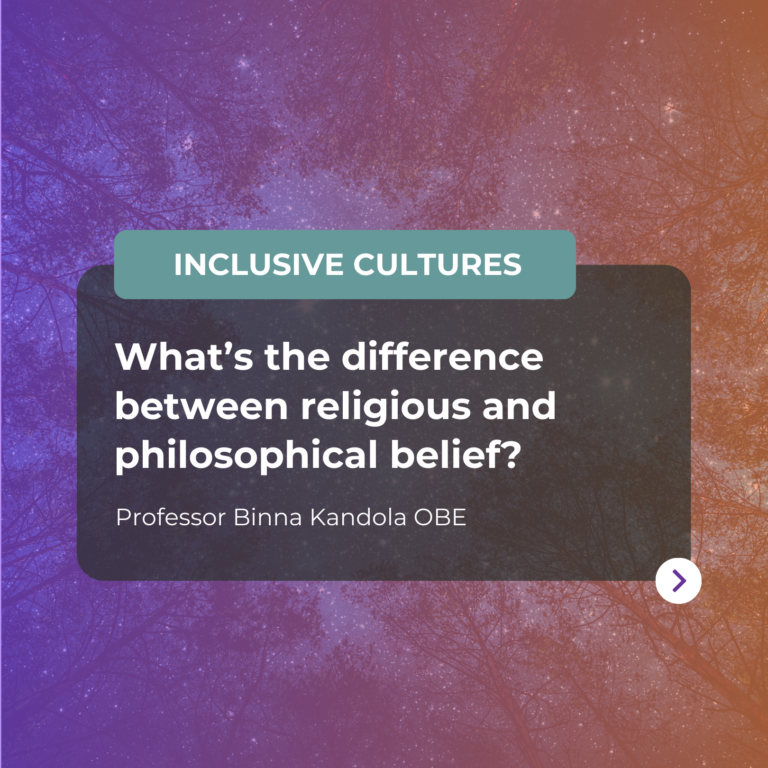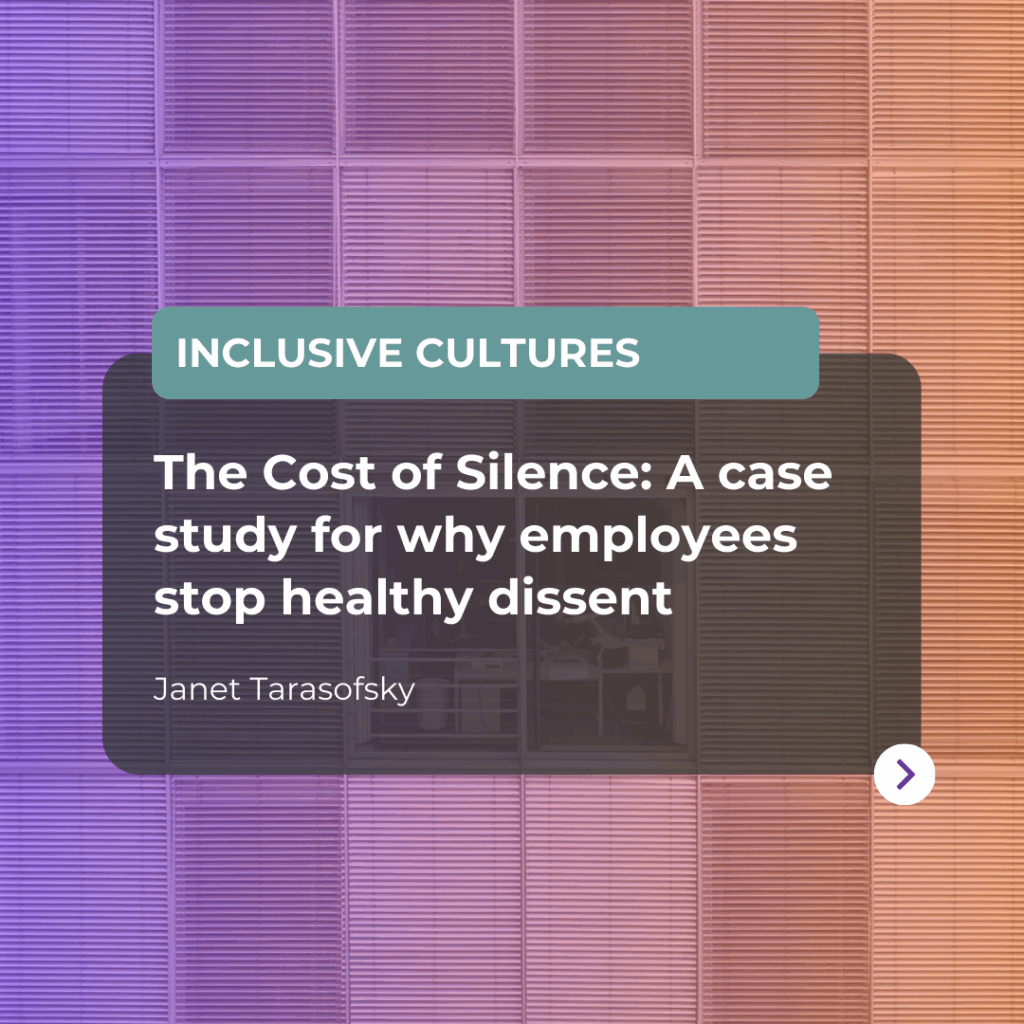Following the release of Pearn Kandola’s Religion at Work Report, I interviewed employment experts Amy Leech and Simon Fennell about religion’s status as a protected characteristic in the eyes of the law.
It was a broad conversation, which I would heartily recommend listening to via our Religion at Work podcast. But one question in particular that prompted a significant amount of discussion was that of the difference between religious and philosophical belief.
The vast majority of us would agree that to discriminate against someone on the basis of their religious beliefs is unacceptable. But philosophical belief appears to be more of a grey area, with practitioners like Simon and Amy seeing it at the heart of a growing number of increasingly nuanced cases.
So let’s try to shed some light on this complex topic. What do we mean by a philosophical belief? How does it differ from religious belief, and how, exactly, should employers treat team members who hold one?
How does the law define a philosophical belief?
The legal definition of a philosophical belief – or rather the lack thereof – is largely where the problem begins.
The Equality Act 2010 simply defines religion as any religion, while a belief may be any religious or philosophical belief. Guidance from the European Convention on Human Rights, which we enact through the Human Rights Act, talks about the freedom of conscious thought and religion, including somebody’s right to have, express and change a religious belief. As an added complication, the right to a religion or a belief actually includes the absence of a religion or belief, meaning that someone who is vehemently against holding a certain belief is in fact equally protected under the same guidance.
So the law is quite vague on this issue, requiring us to look at codes of practice, the way guidance has evolved through case law and the way the courts have interpreted it.
How can we identify a philosophical belief?
With a religious belief, where there exists a broad construct of what that religion entails, it’s often fairly straightforward to understand and therefore treat it with the respect it deserves. Needing time for prayers on a Friday, for instance, or being unable to work on a Sunday might be inconvenient for an employer, but can generally be dealt with quite easily.
But when someone comes forward with a philosophical belief, such as on climate change, that becomes far more difficult. It’s a complicated area, boasting some increasingly nuanced examples. One particularly quirky case saw someone attempt to assert that being an ardent Celtic football fan was a philosophical belief.
In the absence of a straightforward definition, a helpful way to think about belief may be to question the extent to which it has been incorporated into a person’s life. Veganism, for instance, has actually been considered both ways. There are several case law decisions that have identified veganism – particularly what’s described as ethical veganism – as a protected belief. But those cases included an individual who, from the way they travel to the clothes they wear, had absorbed that belief completely into their being.
On the flip-side, there have been cases in which the way someone adopted veganism into their life was not sufficient for it to be protected. Veganism was cited by some as a reason to reject the Covid-19 vaccination, causing problems for employers who said staff must be vaccinated to return to the workplace. The tribunal ruled in this case that it hadn’t been absorbed into those individuals’ wider belief system, as they simply used a few ethical products and tried to maintain a vegan diet.
What about beliefs that clash?
A growing issue for employers is that of dealing with beliefs that are protected by law, but which clash or are even considered outright offensive by others. The important thing to remember here is that two employees with opposing beliefs may voice them. The belief itself, even if it is deemed by some to be offensive, cannot be treated as a problem. What those individuals can’t do is air their beliefs in such a way that goes over the line of acceptable behaviour.
Likewise, employers can get into trouble for sharing their own beliefs, particularly when they clash with another’s or may appear to politicise certain campaigns. For instance, in recent years we’ve seen significant public discussion of #MeToo and Black Lives Matter, with many employers encouraging their teams to support those movements. But when we look at the conflict in the Middle East, which of course features a humanitarian element, employers have been seen to say that staff may not support one or other of those peoples. Inevitably, the immediate response from team members is: Why not? Why is this different to me supporting Black Lives Matter or #MeToo?
So expressing beliefs that may be controversial or can even be perceived as political makes things very difficult.
What can we expect in the coming years?
Legislation is changing all the time, and philosophical belief is a rapidly developing area. Case law has identified more and more philosophical beliefs that are capable of being protected, and we’ll likely see more cases coming through the courts exploring it, specifically cases in which an employer must balance one belief against someone else’s. To those employers who are trying to navigate this area, it’s about adhering to the guidance and ensuring that beliefs are aired in a respectful way.
For further information, my conversation with Simon and Amy is available to hear in full via the Religion at Work Podcast. And for employers who are keen to learn how they can better support their colleagues of faith, Pearn Kandola’s Religion at Work Report is available to download.






